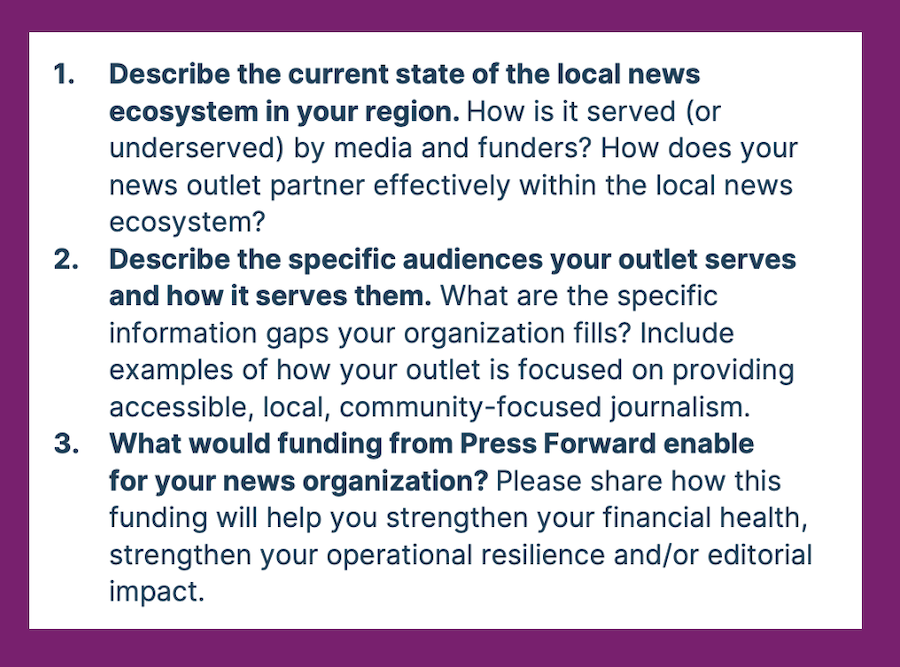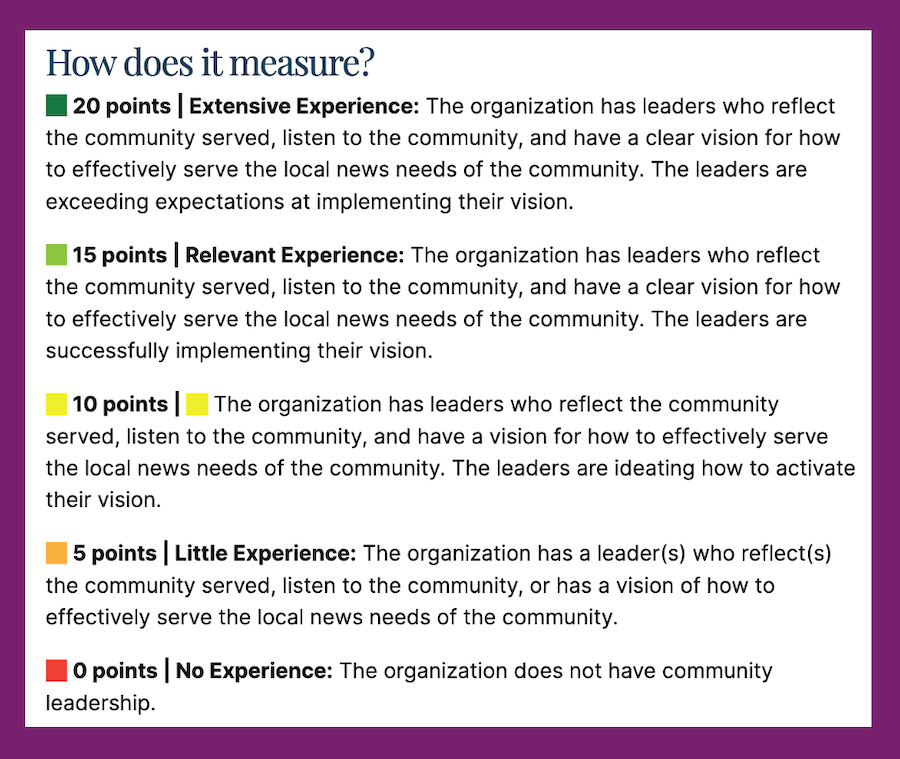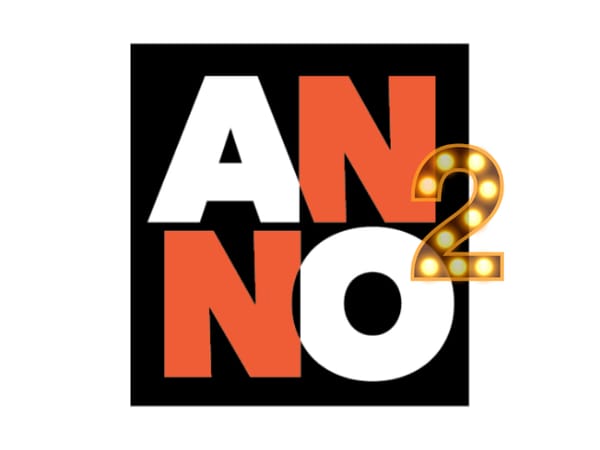Publishers loved Press Forward’s grant coaches – but report the app process was unfair in two big ways.
Did you get the rubric in time?

By Alice Dreger
Press Forward has already said we shouldn’t be expecting another round of open-call funding for local news operations, so the grant application round that just closed counts as especially critical to many organizations. (A lucky one hundred applicants will be receiving $100,000 each over the course of two years.)
So it came as a brutal disappointment to one publisher who discovered, minutes too late, that Press Forward apparently changed the deadline from Pacific to Eastern time.
The publisher, who doesn’t wish to be identified for fear of retaliation, wrote to Local News Blues to tell us their story. They’d been working off the assumption that the deadline was 11:59 pm PT on June 12, because that’s what the Press Forward and JustFund systems had been publicizing.
The applicant had gone through all the steps – developing the application materials, garnering letters of support – only to be faced with a family emergency on June 12. Still, late that night, they pushed their way to their computer to hit “send” on the application at 9:15 pm PT (12:15 pm ET). It was then that the system rejected the application, saying it was past the deadline.
The applicant tried appealing to the Press Forward staff – noting that even materials downloaded on June 12 had stated a deadline of PT – only to be told, in effect, “Tough luck.”
On June 17, the day after the publisher let me know about this, I wrote to Dale Anglin, Press Forward’s director, to ask for her to explain what happened. I also asked her to let us know how she thought the process went.
“Will reply officially later this week,” Anglin wrote back the same day to say she would “reply officially later this week. But just know we are very pleased with the response from the field, and working to manage a few things.”
Since that message from a week ago, despite a nudge, we’ve heard nothing more.
[See update at end of column.]
Meanwhile, conversation on the ANNO list turned up another major point of apparent unfairness in the process. It turns out some of the applicants managed to obtain the grant rubric – the rules stating specifically how each application will be judged – while others did not.
That means some applicants were able to tailor their submissions to maximize points from the reviewers, while others were not. (See the rubric here.)
The rubric wasn’t included in the original application materials and wasn’t pushed out in an organized fashion by Press Forward, according to what publishers tell us.
One applicant recalls happening upon it on June 4 at the Press Forward site. Another saw a reference to it in a “reminder” email the day before the June 12 deadline. Others obtained it from the coaches hired by Press Forward to help applicants. One ANNO member said their counselor was surprised that it had been made public but was glad to share it with her applicant-clients.
But plenty of applicants didn’t know the rubric was available. They weren’t pointed to it by their coaches, perhaps because their coaches were unaware it was available. One publisher said it seems clear their coach didn’t know about it, or the coach’s advice would have been shaped differently.
For example, the grant's three prompts didn't ask about organizational leadership:

But fully 20% of the rating will be based on how well an applicant scores on the issue of organizational leadership:

On June 20, I asked Anglin to tell us when the rubric was released and how it was pushed out. No response to that yet, either.
All in all, applicants gave the hired coaches high marks. In fact, the coaches were named by many as the best part of the process.
News organizations also found the process useful in terms of helping to articulate mission, experience, and goals.
Emily Sachar of The Daily Catch in New York called it “a great opportunity to force ourselves to reflect on our accomplishments and to think strategically about our ambitions. It was also a lot of fun to create the requested 3-minute video and to think about how to present our work with a visual marketing appeal.”
Regina Clarkin from the Peekskill Herald in New York “found the process not that complicated once I read through the directions and got to look at the forms. I was happy to see that they increased the character count from 1,000 to 3,000 for the areas of explanation on the three questions. I was also grateful they asked for a sample story and allowed videos.”
One publisher who declined to be named said they found the questions poorly thought-out, given that the third of three formal questions asked what would be done with the grant funds but then the form asked an extra question about financial need.
This person said their coaches agreed the questions were poorly designed, and indeed, looking at the rubric, it seems like there could have been a much clearer a connection created between the questions and what applicants will actually be judged on.
Everybody I asked is, of course, hoping for a win, as being chosen could make the difference between survival and closure. In Clarkin’s words, “that big chunk of dollars for operating capital will be a game changer for my organization in terms of sustainability.”
UPDATE, June 24, 2024: The person who wrote to us about being shut-out by the changed deadline wrote to say Press Forward briefly reopened the app window on June 20-21 to allow those who had been caught in the deadline revision gap to submit their apps. We have not yet received responses to our questions to PF Director Dale Anglin.
UPDATE: June 26, 2024: We now have a response from Press Forward. Read it here.
Alice Dreger is a journalist, historian, and the publisher of Local News Blues. She founded East Lansing Info, a nonprofit digital investigative news service, and ran the operation for about ten years. Read more at the Local News Blues contributors page.





